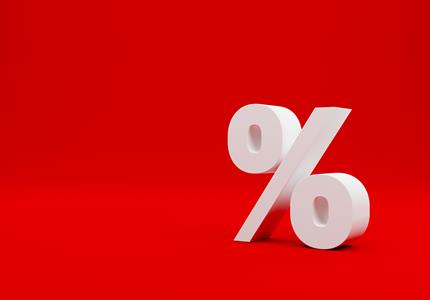

Election results are in - A turning point for the UK
A turning point for the UK...
We now know that the forecasters and markets were right to predict that a majority Conservative government would be elected to drive policy forward for the next few years. In our view, this result will likely mark the beginning of a new phase for the UK economy and sterling assets, determining not only the Brexit outcome but also the end of austerity and the start of a new fiscal expansion.
This will have a significant impact on economic growth and financial markets, not just in the UK but for Europe as well.
From an economic stance, Boris Johnson’s first priority will obviously be to pass his Withdrawal Agreement and move into the second phase of negotiations, which will include striking a new trade agreement with the EU and agreeing the transition plans, preferably before the end of 2020. However, it is, of course, possible that a new trade deal is not agreed before this deadline, which may cause the government a problem given that part of its manifesto pledge was to not extend the transition period. It is therefore possible that investors and markets would continue to worry about a harder form of Brexit until agreement is reached. On balance though, we believe that it would be in the interests of all parties to agree a sensible trade deal and that the transition deadline will be extended, if required. Assuming this is the case, the economy should benefit from the releasing of the pent-up investment and consumption demand, which has been delayed because of the policy paralysis. The Conservatives plans to implement an additional fiscal stimulus worth £20bn and tax cuts, together with their business-friendly policies would also provide an extra boost to confidence and the economy.
We need to remember, however, that any bounce in the UK economy over the next couple of years will likely be cyclical given that the country is struggling with many of the secular trends evident in other developed economies, namely ageing demographics, disappointing productivity, rising debt levels and weak median income growth (despite low unemployment).
Also, the global economic background is fragile with slowing growth, falling inflation, high debt levels, excess savings and elevated political risks. The UK is not immune to these external threats but, importantly, should benefit from a relative short-term upswing should the policy vacuum end, as envisaged. Also, Bank of England (BoE) policy will continue to support the economy and asset markets. Despite the prospect of a pick-up in activity and the promised fiscal stimulus, the BoE will remain dovish and cautious given the shaky global macro backdrop and subdued inflationary pressures. This is especially true as other global central banks have embarked on a new round of reflationary policies and it would be both unusual and risky for the BoE to go against this trend.
Even if the economy does not see a material improvement, UK assets will probably be beneficiaries of the post-election environment. On most measures, sterling looks cheap relative to other currencies, despite the UK’s twin fiscal and trade deficits.
Sterling has already rallied strongly since it became clear that a “hard Brexit” was increasingly unlikely and in anticipation of a Conservative election victory.
However, we expect further and gradual appreciation over the next few months as sentiment improves and as the new relationship with Europe becomes clearer. Sterling should also benefit from increased interest from overseas investors in undervalued UK assets.
Turning to financial markets, gilts and corporate bonds will continue to be influenced more by global factors than domestic considerations. For example, slowing global growth, disinflationary secular forces, central bank reflationary policies and the “search for yield” will exert downward pressure on sovereign bond yields and support credit markets. BoE policies should also remain very helpful. As far as equities are concerned, we believe that most UK companies are cheap in absolute and relative terms and are due a re-rating given valuations, a removal of some of the uncertainty and the fact that both monetary and fiscal policies should be working in tandem to improve the long-term outlook. The market will likely also benefit from increased M&A activity. If sterling continues to strengthen, as anticipated, this would be expected to negatively impact the earnings outlook for export oriented UK equities. This is especially true for FTSE 100 companies, given the very high weighting to non-sterling sales and revenues. In addition, and similarly to the economic outlook, UK equities will continue to be impacted by the challenging environment for global equities. However, on a longer-term basis, we believe that UK equities, and domestically focussed mid and small cap companies, in particular, are an attractive investment opportunity and could be in the early stages of a period of significant outperformance.
From a local Channel Islands’ perspective, where Ravenscroft is headquartered, and of course putting aside any political allegiances, this is also a good result.
It’s true that we face similar economic and social challenges to many developed countries and need to heed the warnings from global events and deal proactively with our own issues. However, the islands are generally considered to benefit from a stronger UK economy and higher sterling asset prices. Although it can be argued that a different result might have seen an influx of wealthy individuals into the Bailiwicks of Guernsey and Jersey, we can still compete very effectively to attract strong interest from people wishing to move to, or invest in, the islands. In the meantime, low interest rates, a more stable UK political platform and improved confidence will also support our local economies.
In conclusion, we believe that a Conservative majority is the best outcome for the economy’s prospects and for UK assets. Indeed, it could be a watershed moment for the UK, although we are conscious of the challenging global macro backdrop and will be watching how policies evolve over the next few months. It should also remove some of the uncertainty around trade and Brexit policies for the wider European economy.
In the meantime, we have identified a number of very attractive UK investment opportunities, which we will be looking to take advantage of on behalf of our clients as events unfold.
We are also focussed on investing in global companies, assets and themes, which we consider to be very undervalued and interesting on a long-term view and also believe that many of these investments will prove more defensive should the market outlook worsen.
In this way, we hope to continue to deliver attractive returns for our clients, regardless of the background, and in the belief that interest rates and cash returns are set to stay low for a long time to come.
Kevin Boscher joined the Ravenscroft Group in 2019 and is Chief Investment Officer.
Prior to joining Ravenscroft, Kevin was Chief Investment Officer for Brooks Macdonald Asset Management (International) Limited. He has over 35 years’ experience in financial services and investments, in particular, having spent most of his career in the areas of portfolio management, fund management, asset allocation, investment strategy, fixed income, hedge funds, multi-manager investing and absolute return investing.
Kevin holds the Chartered Institute for Securities & Investment (CISI) Chartered Wealth Manager Qualification and is a Chartered Fellow of the CISI. Kevin is a regular speaker at investment conferences and seminars and is also a frequent commentator for CNBC and Bloomberg TV.


